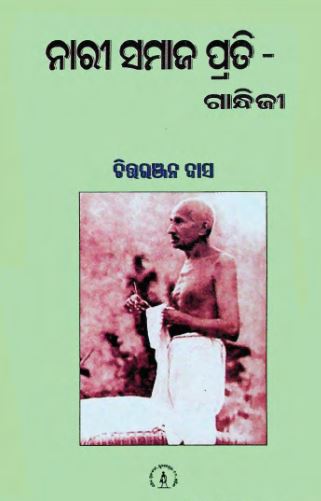Narisamaj Prati is a seminal work authored by Mohandas Karamchand Gandhi and translated into Odia by Chittaranjan Das. Published initially in 1946 and later republished in 2008, the book remains a cornerstone in feminist literature and offers an insightful reflection on the socio-political landscape of women in India. Gandhi’s thoughts, coupled with Das’s translation, make this essay an indispensable read for anyone interested in the intersection of gender studies and Indian history.
Gandhi’s views on women were radical for his time. He envisioned a society where women stand on equal footing with men, free from the shackles of patriarchy and social injustice. In “Narisamaj Prati,” Gandhi articulates his belief that women are not mere appendages to men but possess individual identities and capabilities that deserve recognition and respect. He emphasizes that the strength of a nation is intrinsically linked to the empowerment of its women.
One of the most compelling arguments in the book is Gandhi’s portrayal of women as pivotal players in India’s struggle for independence. He recounts the contributions of countless women who braved societal norms to participate in the freedom movement. These narratives serve as powerful reminders that the quest for national independence was also a quest for individual freedoms, transcending gender boundaries.
Gandhi places a strong emphasis on education as a tool for empowerment. In “Narisamaj Prati,” he advocates for comprehensive education for women, not just in traditional academics but also in self-reliance and moral strength. According to Gandhi, education is not merely a means to achieve economic independence but a pathway to self-discovery and societal contribution. He believed that educated women would become the torchbearers of ethical living and community development.
Gandhi uses this platform to address several pressing social issues, such as dowry, child marriage, and gender-based violence. He calls for a collective societal effort to eradicate these evils, advocating for legal reforms and a change in societal attitudes. Gandhi’s approach is both practical and idealistic; he recognizes the need for immediate legal protections while also urging for a long-term cultural transformation.
The translation by Chittaranjan Das is noteworthy for its fidelity to Gandhi’s original text while making it accessible to the Odia-speaking population. Das’s work ensures that Gandhi’s radical ideas on gender equality reach a broader audience, fostering a deeper understanding and encouraging a wider societal impact. His translation retains the essence of Gandhi’s language, marked by simplicity and profound depth, making it relatable to the common reader.
While “Narisamaj Prati” was published over half a century ago, its themes resonate strongly today. The ongoing struggle for gender equality and justice aligns closely with Gandhi’s vision. The book continues to inspire new generations to challenge outdated norms and work towards a more equitable society.
“Narisamaj Prati” is more than just an essay; it is a clarion call for societal transformation. Gandhi’s wisdom, translated adeptly by Chittaranjan Das, provides timeless insights into the essential role of women in society. By recognizing and championing the contributions and rights of women, the book lays a foundation for a more just and balanced world. The enduring relevance of “Narisamaj Prati” makes it a must-read for anyone committed to the cause of gender equality and social justice.
Books Info
| Books name | Narisamaj Prati/ନାରୀସମାଜ ପ୍ରତି ଗାନ୍ଧିଜୀ |
| Author | Mohandas Karamchand Gandhi; Chittaranjan Das, Tr. |
| No Of pages | 165 |
| Publisher | Parthika Prakashani |
| Publication | 1946, 2008 ne. |
| Printed At | Shovan |
| Distributor | NA |

